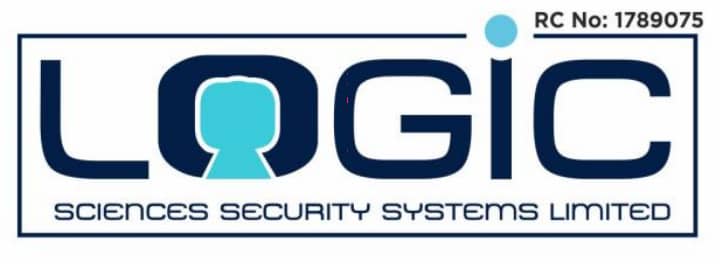If you’re wondering how to get into aviation school in Nigeria, you’re not alone. Many young people dream of a career in aviation, whether as pilots, aircraft engineers, or other aviation professionals. This guide explains, in clear steps, what you need to do to access aviation training in Nigeria, especially with the Nigerian College of Aviation Technology (NCAT) and other options.
How to Get Into Aviation School in Nigeria
1. Decide What Kind of Aviation Training You Want
Aviation training is not one-size-fits-all. To know how to get into aviation school in Nigeria, first decide which path you want:
- Pilot training (flying school)
- Technical training (aircraft engineering, maintenance)
- Management or air traffic services
The requirements, costs, and training duration vary significantly depending on which path you pick.
Also read: Top 10 Aviation Schools in Africa | Latest Guide
2. Consider NCAT: Nigeria’s Premier Aviation College

One of the most well-known aviation schools in Nigeria is the Nigerian College of Aviation Technology (NCAT), located in Zaria.
NCAT offers several programs:
- National Diploma (ND) in Aircraft Engineering or Electrical/Electronic Engineering
- Higher National Diploma (HND) in Aircraft Maintenance Engineering or Avionics
- Post Graduate Diploma (PGD) in Aviation Management or Air Traffic Safety Electronics
- Standard Pilot Course (for aspiring pilots)
3. Meet the Entry Requirements
You need to satisfy certain academic and non-academic criteria. Here’s how to do that:
For Pilot Training (Standard Pilot Course)
- Be at least 17 years old.
- Hold a valid Class 1 medical certificate.
- Have at least five credits in O’Level: English Language, Mathematics, Physics, plus other science subjects.
- Proficiency in English language, Mathematics and Science is required.
For ND (Engineering / Technical Courses)
- At least five credits in O’Level (WAEC, NECO) including English, Mathematics, Physics, Chemistry, and a relevant subject.
- A minimum UTME score of 120 for ND admission.
For HND / PGD
- WHat you need for HND: You need a National Diploma in a relevant field, with at least Lower Credit (CGPA ≥ 2.50), plus at least one year of work experience in a related role.
- For PGD: Requires a BSc or HND, or NCAT Diploma + professional licence + work experience.
Also read: 10 Top Airlines in Africa | Latest Update
4. Complete the Application Process
Here’s how to apply, step by step, if you’re aiming for NCAT — this is central to how to get into aviation school in Nigeria when choosing NCAT.
- Register an account on the NCAT Online Application Portal.
- Pay the application fee (via Remita.net or CBN Gateway).
- Upload your documents: recent passport photograph, biodata, results of your O’Level (WAEC, NECO, etc.).
- Select your course (ND, HND, PGD, Pilot).
- Submit the completed form once all sections are correctly filled.
- Wait for shortlisting and check your application status on the portal.
5. Prepare for Post-UTME Screening (for ND / Diploma)
- NCAT runs an online Post-UTME screening for ND candidates.
- For the 2025/2026 session, candidates need to upload their O’Level results on the JAMB CAPS portal.
- The screening is free, according to NCAT’s notice.
Also read: High-Paying Jobs in Aviation Around the World in 2025
6. Be Medically Fit
Medical fitness is mandatory for several aviation courses:
- For pilot training, you must have a Class 1 medical certificate at the start.
- For technical courses, being “medically fit” is a stated requirement in NCAT’s admission advert.
7. Budget for Fees
Training in aviation can be expensive, especially for pilot courses:
- The Standard Pilot Course at NCAT costs N12,838,110 (excluding accommodation and feeding).
- For non-pilot training or other courses, check NCAT’s course calendar for their fee schedules.
8. Once Admitted: Complete the Training
After gaining admission, you will:
- Attend theoretical ground school: subjects like navigation, air law, meteorology, aircraft systems (for pilots), or engineering classes (for technical students).
- Undergo practical training: for pilots, that means flight hours with instructors. For engineers, that’s hands-on work on aircraft maintenance or systems.
Also read: Full List of Airlines in Nigeria 2025: Local and International Carriers
9. After Training: What Next
Once you finish aviation school:
- If you’re a pilot, you need to build flight hours.
- If you studied engineering or maintenance, you can apply for relevant technical roles in airlines or aviation firms.
- Keep in mind: aviation careers often require continuous training, certification, and sometimes additional ratings.
Quick Thoughts on Getting Into Aviation School in Nigeria
- How to get into aviation school in Nigeria depends largely on the path you pick — pilot vs technical.
- NCAT remains one of the top and most recognized aviation schools in Nigeria.
- Meeting academic, age, and medical requirements is essential.
- The process involves applying through NCAT’s portal, paying fees, uploading credentials, and going through screening.
- Be financially ready: aviation training, especially for pilots, is costly.
- After your training, career progression requires further effort: accumulating flight hours, or gaining work experience.
Other Aviation Schools in Nigeria to Consider
If you’re wondering how to get into aviation school in Nigeria, it helps to know all the viable institutions, not just NCAT. Here are some of the most recognized aviation schools in Nigeria, what they offer, and what makes each one different.
1. International Aviation College (IAC), Ilorin
- Located in Ilorin, Kwara State.
- Offers pilot training courses: Private Pilot License (PPL), Commercial Pilot License (CPL), Instrument Rating (IR), multi‑engine, and more.
- Accredited by the Nigerian Civil Aviation Authority (NCAA) and recognized by the International Civil Aviation Organization (ICAO).
- Entry requirements include: O’Level credits (especially in Science subjects), a Class 1 medical certificate (for pilot tracks), and age criteria. See the requirements here.
- Application involves a written application form, submission of certificates, passport photos, and a medical certificate.
- According to some sources, the cost of a standard pilot course there may be around ₦7 million (though this can vary).
Also read: NG Eagle Airline: How To Book A Flight
2. Landover Aviation Business School (LABS), Lagos
- Based in Ikeja, Lagos.
- More focused on aviation business, management, and non-technical roles (not just flying).
- Programs include: aviation management, flight dispatcher training, cabin crew, and IATA-certified aviation courses.
- Accredited by both NCAA and IATA.
- According to available data, fees range from ₦250,000 to ₦800,000, depending on the program.
3. Dhaewood Aviation Business School (DABS), Lagos
- Also in Lagos.
- Offers courses like: pilot ground school, cabin crew training, aviation security, travel agency management.
- Accreditation: NCAA and IATA.
- Fees for their programs are reported to be between ₦250,000 and ₦1,000,000, depending on the course.
4. Universal School of Aviation (USA), Lagos
- Located in Ejigbo, Lagos.
- Programs include: cabin crew training, ticketing & reservation, basic flight dispatch, travel & tourism.
- Accredited by NCAA.
- Tuition for non-technical/short courses is about ₦300,000–₦750,000, per some sources.
5. Continental Aviation School, Ogun State
- Based in Abeokuta.
- Offers aviation training across a few different domains with a strong emphasis on safety and professionalism.
- Known for experienced instructors and modern training facilities.
6. Other Notable Aviation Schools in Nigeria
According to a variety of sources, there are a number of other aviation training institutions operating in Nigeria:
- Skyway Aviation Training School (SATS), Lagos.
- Pilot’s Academy, Lagos — for pilot training (PPL, CPL, ATPL) and flight dispatch.
- Wings Aviation Academy, Lagos — training for pilots, maintenance engineers, air traffic control, and cabin crew.
- National Airspace Management Agency (NAMA) Aviation School, Abuja — specialized in airspace management, ATC, aviation safety, and radar systems.
Why Consider These Other Schools When Thinking About
- Diverse training paths: Not everyone wants to be a pilot. Some schools like LABS and DABS offer business-aviation roles—cabin crew, dispatch, and management—which are just as important in the aviation ecosystem.
- Cost variety: Depending on your career goal, you might find non-pilot courses more affordable compared to full pilot training.
- Location advantage: If you’re in Lagos, some of these schools are more accessible than traveling to Zaria (for NCAT) or Ilorin.
- Regulatory approval: Many of these schools are approved by the NCAA, ensuring that their training meets national aviation standards.
How to Get Into Aviation School in Nigeria: Conclusion
Entering aviation school in Nigeria is a serious but achievable goal once you understand the steps and requirements. To recap, start by deciding the specific aviation career you want (pilot vs. technical), then research institutions like NCAT and other accredited schools.
Make sure you meet academic, age, and medical standards. Complete the application process carefully, including the online registration, document upload, and post‑UTME screening (if required). Furthermore, be ready for the financial commitment, especially for pilot training, and once admitted, commit to both classroom (ground school) and practical training.
Last but not least, after graduation, plan for what comes next: building flight hours if you’re a pilot or finding a technical role if you studied engineering. With clear goals and dedication, you’ll know exactly how to get into aviation school in Nigeria and take solid steps toward an aviation career.
Stay connected to this blog for more useful day-to-day updates. Follow us on X (formerly Twitter) @Logic_sss for more.


